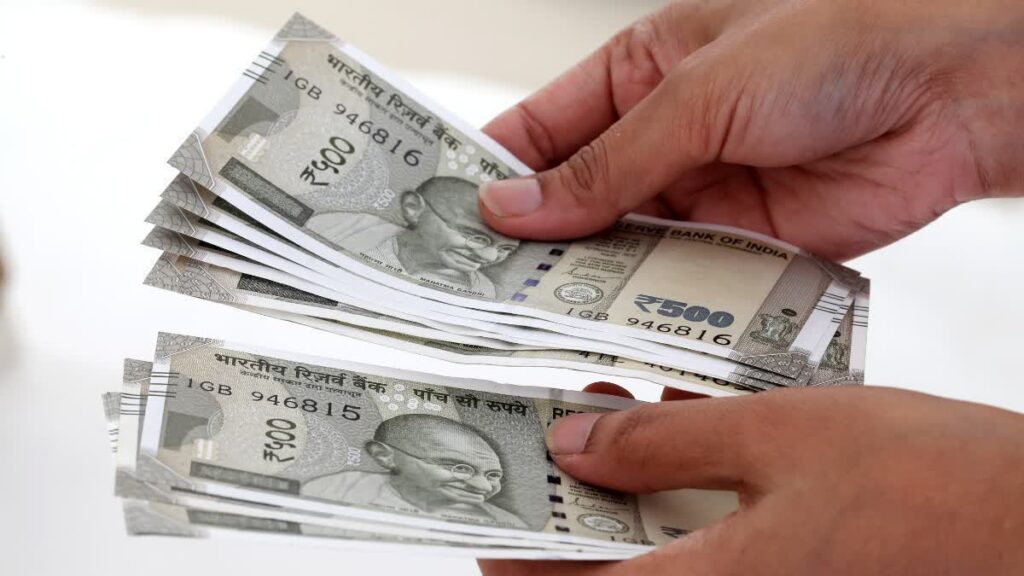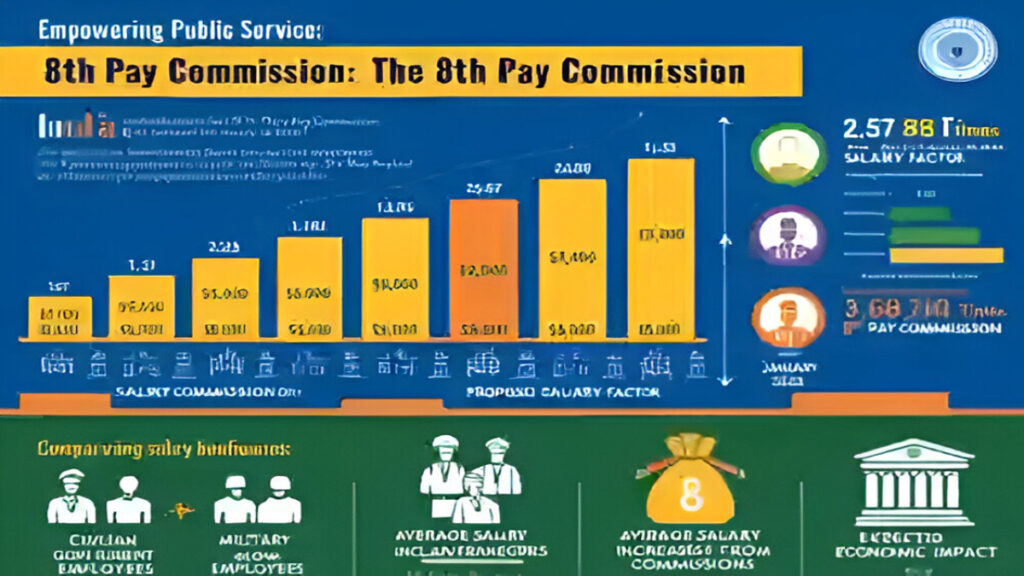Now Reading: 8th Pay Commission: Massive Salary Hike Expected
-
01
8th Pay Commission: Massive Salary Hike Expected
8th Pay Commission: Massive Salary Hike Expected

New Delhi, November 24, 2025: The countdown for the 8th Central Pay Commission (CPC) has begun, bringing significant hope for a major salary and pension boost for nearly 1.15 crore central government employees and pensioners. With the Union Cabinet recently approving the Terms of Reference (ToR), the commission is now set to begin its work, with its recommendations expected to be implemented from January 1, 2026.
The core of the revision revolves around the Fitment Factor, a key multiplier that will determine the new basic pay for all employees.
Understanding the Fitment Factor and Salary Boost
The Fitment Factor is a uniform multiplication figure applied to an employee’s existing basic pay (under the 7th CPC) to calculate their new basic salary under the 8th CPC. Under the 7th CPC, this factor was 2.57.
For the upcoming 8th Pay Commission, reports and employee demands suggest the new Fitment Factor could range between 1.83 and 2.86.
- Impact on Minimum Basic Pay: The current minimum basic pay is ₹18,000. Depending on the final Fitment Factor approved, the revised minimum basic salary could see a massive increase:
- If the factor is 2.46, the new minimum basic pay would rise to ₹44,280 ($₹18,000 \times 2.46$).
- If a higher factor, such as 2.86, is adopted, the minimum basic pay could be around ₹51,480 ($₹18,000 \times 2.86$).
While these figures suggest a significant jump in basic pay, the overall effective salary hike (after accounting for the Dearness Allowance, or DA, being reset to zero) is widely projected to be in the range of 20% to 34%.
Beyond Basic Pay: Key Expected Benefits
The 8th Pay Commission’s scope goes beyond just basic salary and is expected to bring several other benefits:
- Revised Allowances: The Dearness Allowance (DA), House Rent Allowance (HRA), and Travel Allowance (TA) will all be recalculated based on the much higher revised basic pay, leading to a substantial increase in the employee’s take-home salary.
- Enhanced Pensions: The benefits will also extend to pensioners, as pensions are typically revised using the same Fitment Factor applied to basic pay. This will lead to higher basic pensions and a better Dearness Relief (DR).
- Modernized Pay Matrix: The entire Pay Matrix (the structured system of pay levels and grades) is expected to be upgraded, ensuring fair progression and parity across different government ranks.
- Implementation Date: Following the historical trend of pay commission recommendations, the 8th CPC is expected to take effect from January 1, 2026. Employees are likely to receive arrears for the period between the effective date and the actual date of disbursement.
The formation of the 8th CPC is a massive exercise that aims to restore the purchasing power of government employees eroded by inflation and ensure their compensation remains competitive and fair, thereby boosting morale and efficiency across the central government machinery. The final figures, however, will be confirmed only after the Commission submits its detailed report and the government gives its final approval.










